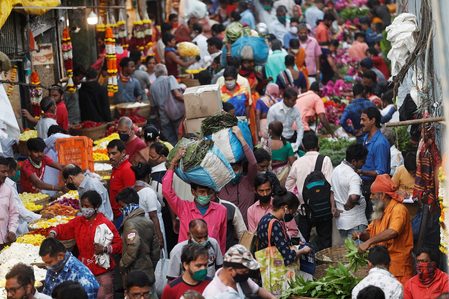SUMMARY
This is AI generated summarization, which may have errors. For context, always refer to the full article.
![[Dash of SAS] Dear Pope Francis, it’s not selfish to not want children](https://www.rappler.com/tachyon/2022/01/TL-childfree.jpg)
I decided years ago that I wouldn’t take love and sex advice from the Pope, a man who has vowed to be celibate. So when he said that choosing to have pets instead of children is selfish, my knee-jerk reaction was to dismiss his opinion as another example of mansplaining. You know, where something is explained or rationalized in a way that is condescending, or in this case, coming from someone who has zero experience in the subject matter.
Let me be clear. The Vatican has made some progress in moving away from upholding heternormative relationships as the only standard that we should all aspire for. In October 2020, the Pope expressed support for same sex unions, saying that the LGBTQ+ community has a right to a family, urging, “What we need to create is a civil union law. That way, they are legally covered.”
It appeared that the Vatican was ready to align its values and beliefs with the current laws around the world that have recognized civil unions for same-sex couples. Still, I was skeptical and cautiously optimistic.
Seems that my skepticism was not unfounded. The Pope still “wants us to go forth and multiply” and is guilt-tripping us into having children.
As Vatican supporters have pointed out, it is true that the Pope did talk about foster parenting and adoption and cited Joseph as a model foster father. This, plus his earlier support for LGBTQ+ couples and families, indicate that while the Vatican is expanding its definition of family, it is still hell-bent on insisting that a happy, complete family is one with children.
When he said, “The denial of fatherhood or motherhood diminishes us, it takes away our humanity,” it was similar to his 2014 comment that “choosing to not have children would end with bitterness and loneliness in old age.”
These pronouncements have the same effect as the triggering comments we hear from relatives during family gatherings. It shames people for choosing not to have children and pushes an archaic belief that having children is the ultimate purpose of any union.
It is not selfishness that is making people think twice about having children.
1) It’s climate change
Climate change is influencing not only our desire to have children but our ability to have them. Climate scientists have been sounding off alarms about global warming for over 20 years. Last year, the UN issued a “code red for humanity,” saying that some climate changes such as continued sea level rise were projected to be “irreversible over hundreds to thousands of years.”
Studies have shown that the ripple effect of this is far-reaching. People are so worried about the climate apocalypse that they are deciding not to have children. Other scientific studies have shown that heat waves caused by climate change reduce male fertility and sperm competitiveness, having long-term effects on fertility.
2) It’s the economy
People have realized that babies are not blessings.
They are a responsibility and duty, and in many countries around the world, including the Philippines, expensive. The pandemic stripped millions of their jobs literally overnight. For many experiential high-contact industries like travel and tourism, the future of work remains uncertain and precarious. A flaccid economy is also a potent form of birth control.
3) It’s the sex recession
Even before lockdown measures put many people’s sex lives on hold, there was already a sex recession. Researchers at the Kinsey Institute have been studying the decline in all kinds of sexual activity – vaginal, anal, and even solo sex or masturbation have been on the decline since the early 2010s.
Some reasons for this nose dive in libido levels – despite dating apps and better access to birth control – included increased conversations around sexual consent, decreased alcohol use, increased social media use, and more young people identifying as asexual.
The climate catastrophe, the droopy economic outlook, and the on-again-off-again lockdowns are all nipping our libido and turning “Netflix with no chill” into a perfectly acceptable way to spend the quarantine days.
4) It’s the changing narrative of parenthood
There was a time when it was unheard of for parents to voice out their regrets or even ambivalent feelings about having children. Internet forums have been the nameless and faceless solace for parents talking about how they regret having children or think having kids was a mistake.
Their sentiments have been translated and mainstreamed into articles and movies. This is not to say that parents, mothers specifically, do not love their children. It is to say that parents wonder what their life would have been like if they had decided not to have children.
And if we dig into this enough, I suspect that we will see that this tinge of regret may be linked to the disappointment with and unmet expectations of the long-standing life script that people need to have children in order to make their lives complete and meaningful.
5) It’s a choice
Ultimately, it is a choice not to have children. A privileged one. In emerging economies, because of the uneven access to birth control, women report having more children than they want or can afford to have. In other cases, infertility prevents some couples from having children.
It’s isn’t selfish to not have children. I would further argue that, so what if it is selfish? We should have control over our life choices.
It is selfish to pressure people into having them and to shame them for their choices without knowing the life circumstances behind it. It is especially selfish, not to mention ironic, coming from someone who has vowed to live a child-free life. – Rappler.com
Ana P. Santos writes about gender, sexuality, and its intersections with labor migration. She has a postgraduate degree in Gender (Sexuality) from the London School of Economics and Political Science as a Chevening scholar.
Add a comment
How does this make you feel?





![[Two Pronged] My daughter wants to go to UP, but my husband insists on a ‘good Catholic school’](https://www.rappler.com/tachyon/2024/02/two-pronged-university-issue.jpg?resize=257%2C257&crop=375px%2C0px%2C1080px%2C1080px)
There are no comments yet. Add your comment to start the conversation.